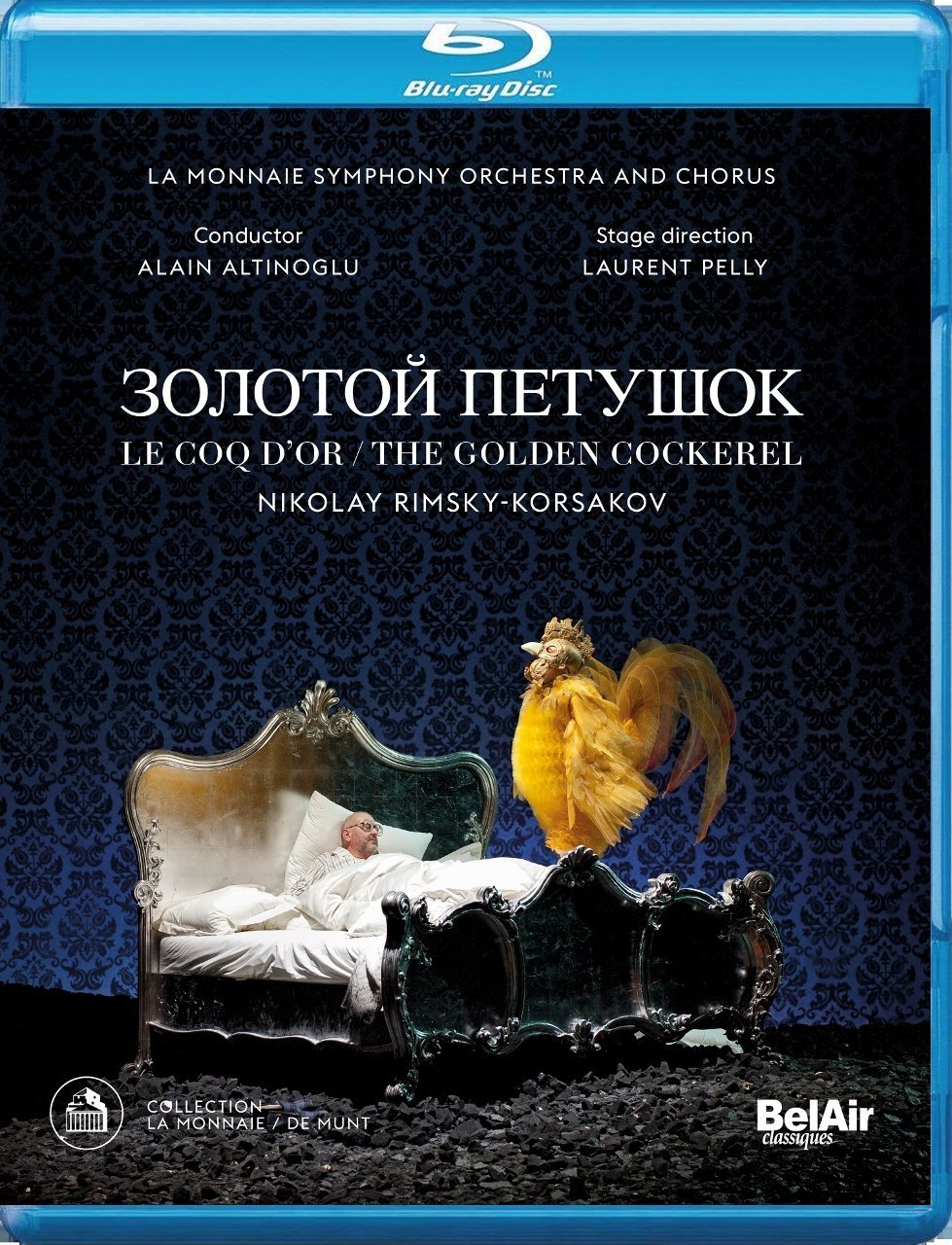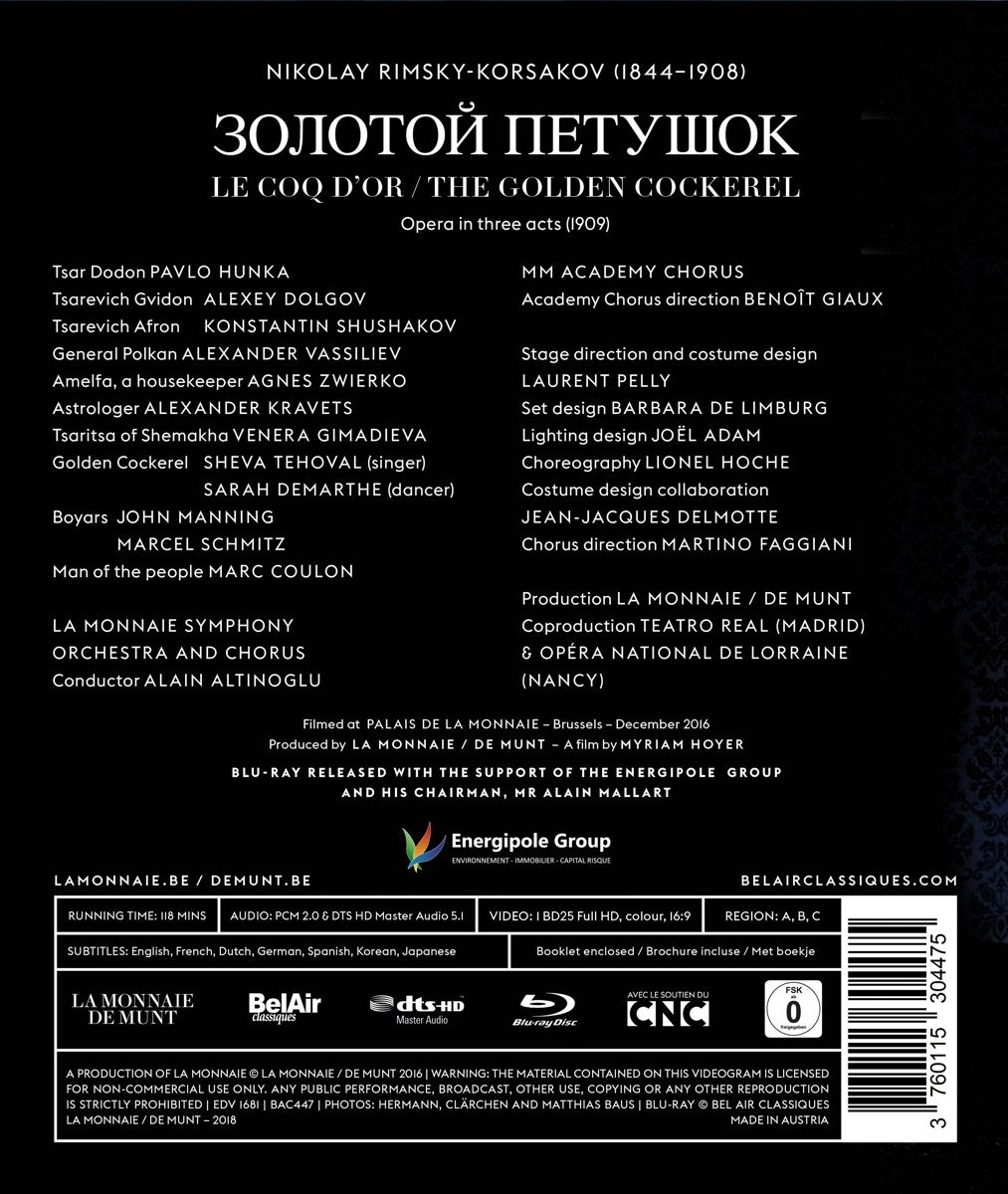

Rimsky-Korsakov Le coq d’or orThe Golden Cockerel opera to a libretto by Vladimir Belsky. Directed 2016 by Laurent Pelly at la Monnaie, Brussels. Stars Pavlo Hunka (Tzar Dodon), Alexey Dolgov (Tzarevich Gvidon), Konstantin Shushakov (Tzarevich Afron), Alexander Vassiliev (General Polkan), Agnes Zwierko (Amelfa), Alexander Kravets (Astrologer), Venera Gimadieva (Tzaritsa of Shemakha), and Sheva Tehoval (Little Golden Cockerel), John Manning and Marcel Schmitz (Boyars), and Marc Coulon (Man of the People). Alain Altinoglu conducts La Monnaie Symphony Orchestra and Chorus (Chorus Master Martino Faggiani) and the MM Academy Chorus Academy (Chorus Master Benoît Giaux). Set design by Barbara de Limburg; costume design by Laurent Pelly and Jean-Jacques Delmotte; lighting by Joël Adam; choreography by Lionel Hoche. Directed for TV by Myriam Hoyer. Sung in Russian. Released in 2018, disc has 5.1 dts-HD Master Audio sound. Grade: NA
First a short history lesson: Remember the 1st Russian Revolution (Battleship Potemkin) that failed in 1905? Coq d'or was finished 2 years later in 1907. The First World War started in 1914, and the Bolshevik Russian Revolution followed in 1917. And let's don't forget our old friend Rasputin. With these facts back in active memory, you realize how brave Rimsky-Korsakov was to write a satirical opera about a foolish and corrupt Tsar who would allow a golden chicken to lead him and his empire into ruin.
Steven Jude Tietjen wrote an illuminating review of Laurent Pelly's "dark production" of Coq in the September Opera News at pages 64-65. Teitjen concludes that Pelly's concept leaves the viewer feeling "that the opera was not about the fall of the Emperor but the tragedy of the people who blindly put their faith in an avaricious leader." H'm. That statement has bite as Tietjen is an New York journalist writing in the Time of Trump. Tietjen's review makes it clear that this is a high-class production of a thinking man's opera. I just wish Steven had seen it in Blu-ray instead of DVD because the darker scenes can benefit so much from high-resolution video as compared to TV in the time of Elvis.
Here is an official clip from La Monnaie. Tietjen warns that this is a "mostly monochromatic" take. The darkness undergirds the seriousness of Pelly's slant and serves, I suppose, to increase the aura of absurdity surrounding the golden chicken. (Isn't there a restaurant named that somewhere near your home?)
OR
